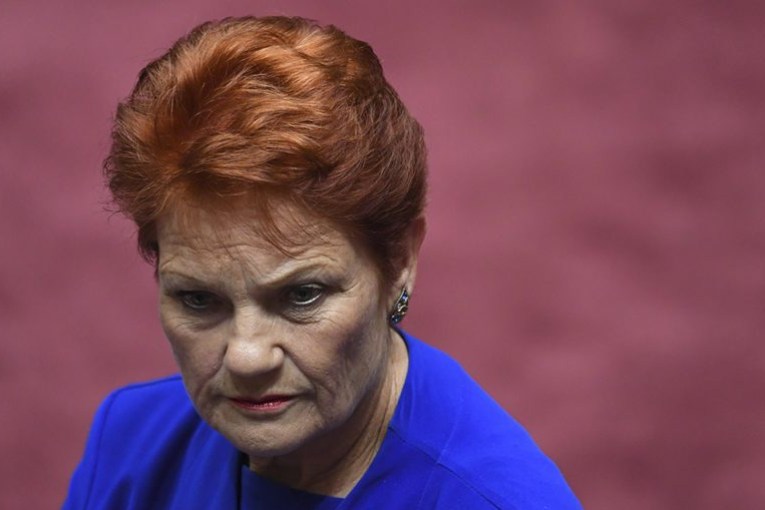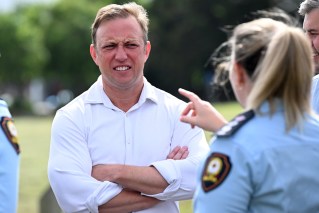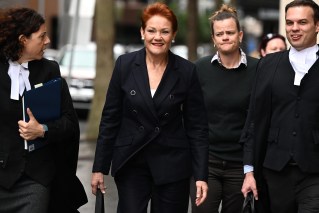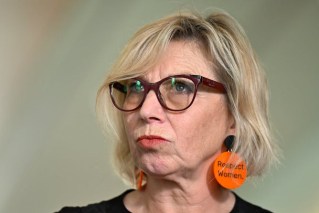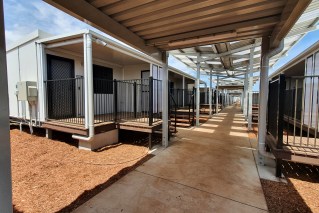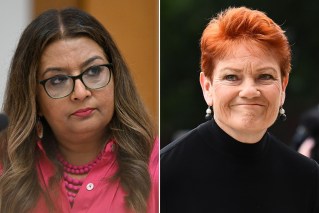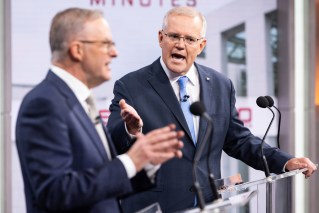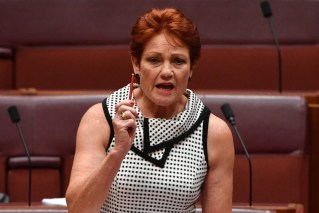Odd angry shout: ‘Warrior’ Thorpe quits Greens as bickering continues over voice
Controversial Greens senator Lidia Thorpe has quit the party and will move to the cross bench, over a spat with colleagues on Indigenous sovereignty.
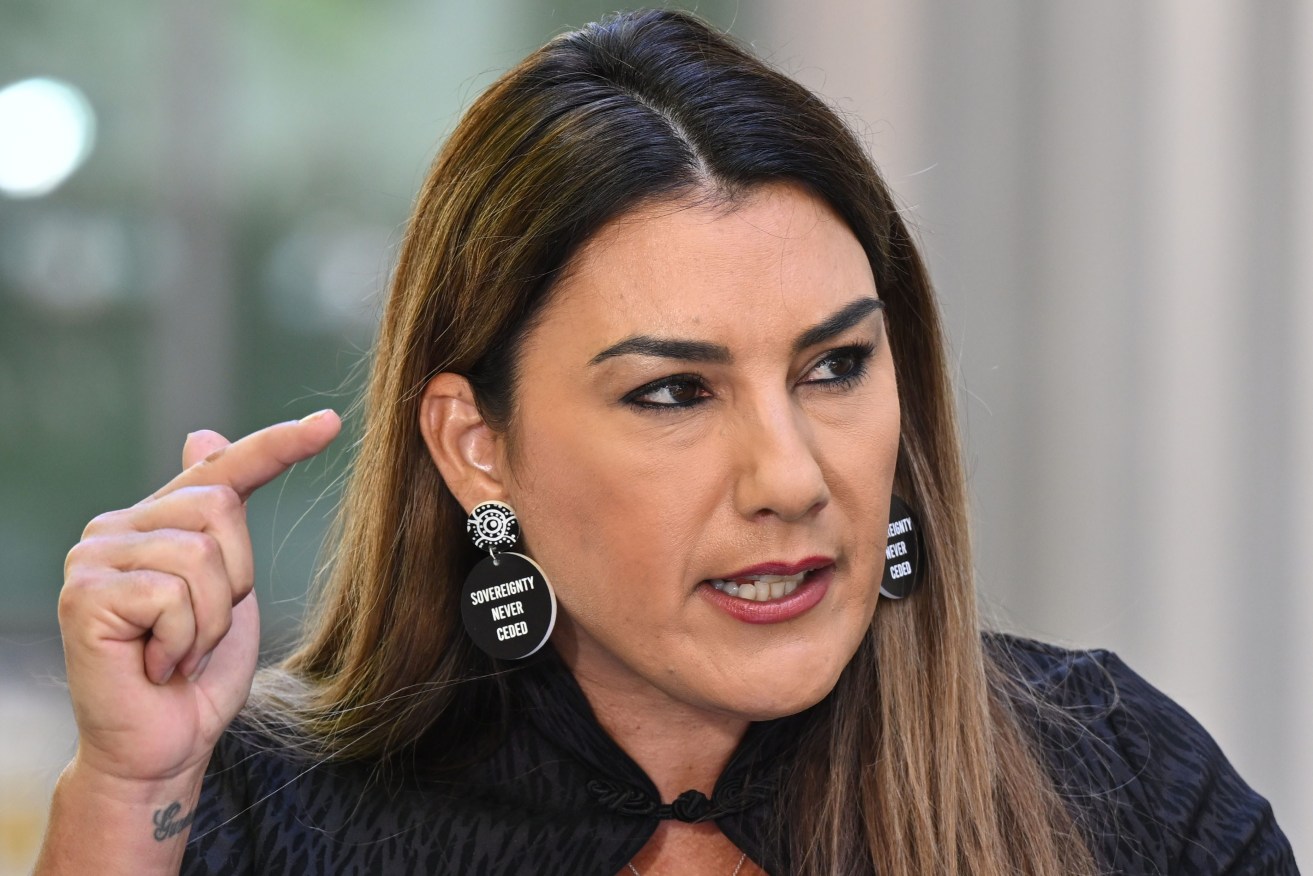
Senator Lidia Thorpe. (AAP Image/Mick Tsikas)
The Indigenous senator said she wanted to represent the “strong, grassroots, Black sovereign movement full of staunch and committed warriors”.
“It has become clear to me I can’t do that from within the Greens,” she told reporters in Canberra on Monday, the first day of parliament for the year.
Prime Minister Anthony Albanese aimed to use the return of parliament to urge support for an Indigenous voice but it was Thorpe’s move that grabbed the headlines.
Thorpe said her new independence would enable her to better fight for First Nations justice and sovereignty.
“I’m ready for what comes next in the fight for a future where our kids are with their families, where our people are not killed in custody, where the chains that the system wraps around our people are lifted,” she said.
Thorpe said a voice to parliament was at odds with what her community had told her but noted she had not reached her final position on the constitutional change, which is expected to be put to a referendum later this year.
Greens leader Adam Bandt told reporters he would have liked Thorpe to stay in the party and he informed her she was free to speak out about her position on the voice.
“I confirmed that, under the Greens’ constitution, she had the ability to vote differently,” he told reporters in Canberra.
“I wish she had made a different decision but I understand the reasons that she has given for that decision.”
Speaking before Thorpe’s announcement, Albanese said the voice to parliament should be above politics.
“We need to get the detail right and there would be a process, as well as that parliamentary debate about the legislation, and I’d want to get as much agreement as possible,” he said.
“I want this to be a long-term reform to benefit Indigenous Australians, to help close the gap.”
The latest Newspoll indicated 56 per cent of respondents supported the voice while 37 per cent were opposed.
“Polls come and go – what matters is when people cast their vote,” Albanese said.
“The call for a Indigenous recognition in our constitution and consultation on matters that affect them will not have an impact on most people’s lives, but it might just make some people’s lives, some of the most disadvantaged people in our country, better.”
The question people will be asked at the referendum on the voice will be known by the end of June.
The wording must be endorsed by both houses of parliament before Australians cast their votes.
Opposition Leader Peter Dutton has consistently called for more details on the Indigenous voice.
The Liberals have yet to come to a formal party position on the voice, with shadow treasurer Angus Taylor indicating further talks were still to take place in the party room.
“I’ll let those processes go through their usual pathways. What I will say is that we still don’t have any sort of detail from the government that allows us to make a sensible decision on this and this is the real challenge,” he said in Canberra.
“The beginning of the pathway is for Labor to give us the real detail as to what they want to do. That’s what we’re missing.”
Labor senator Pat Dodson, the government’s special envoy for reconciliation, stressed the need to secure the voice before a treaty.
“To have a treaty, you have to have a voice, you have to have an entity, you have to have a group of people that have a standing or that have credibility,” he said.
Nationals senator Jacinta Price said the elements that would form the voice had not been made clear.
“It’s a Trojan horse, as far as I’m concerned, to say that ‘there’s all this information there’, but we don’t know what part of that information is in fact going to form the voice,” she said.
“I put it to the prime minister … prove to the Australian people through a legislative model that (the voice) works before you try to mess with our constitution.”
Despite losing a senator over the issue, the Greens have still not come to a final decision on the voice.
Thorpe has said she would not support the voice unless there was a guarantee that Indigenous sovereignty would not be ceded.
Asked whether Victorian voters had been sold a pup for voting for someone they thought would remain in the Greens, Bandt said he and a lot of party members and voters were saddened by the outcome.
“She’s made that decision and she’s explained her reasons for doing it. And we just have to deal with the facts as we find them,” he said.
Her announcement means the Greens will be reduced from 12 senators to 11 and the government will have an additional independent crossbencher to negotiate with.
She will continue to vote with the Greens on climate issues in the Senate.
Prime Minister Anthony Albanese, constitutional experts and the referendum working group have said the voice would have no impact on First Nations sovereignty.
Thorpe replaced former Greens leader Richard Di Natale when he retired in 2020 and was re-elected in 2022.
-AAP
